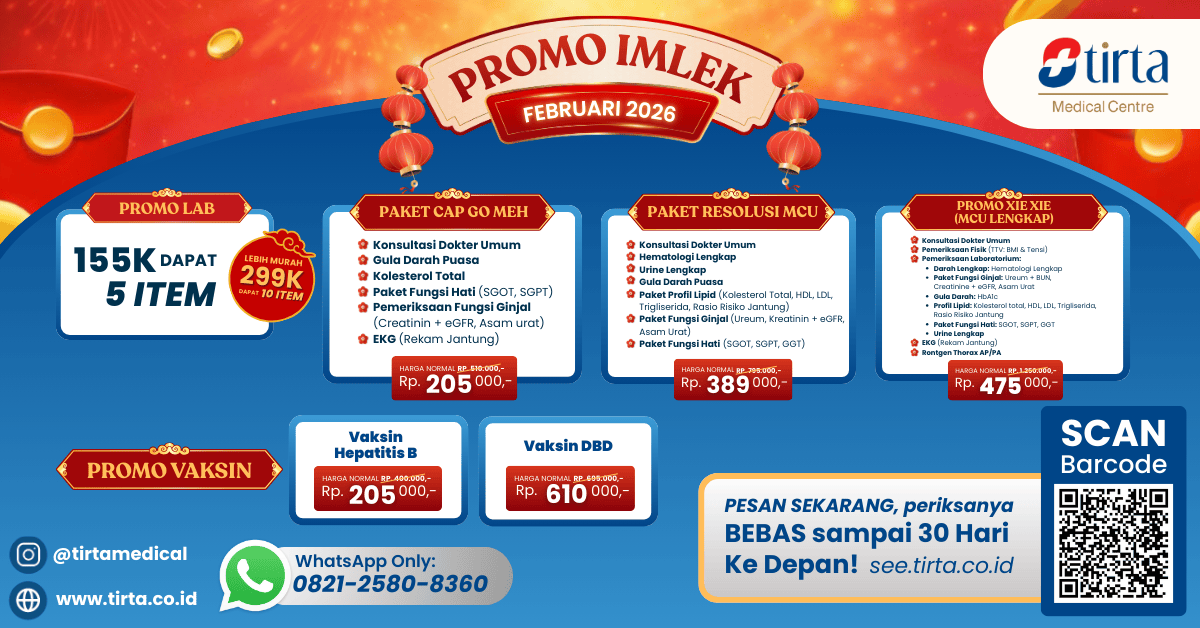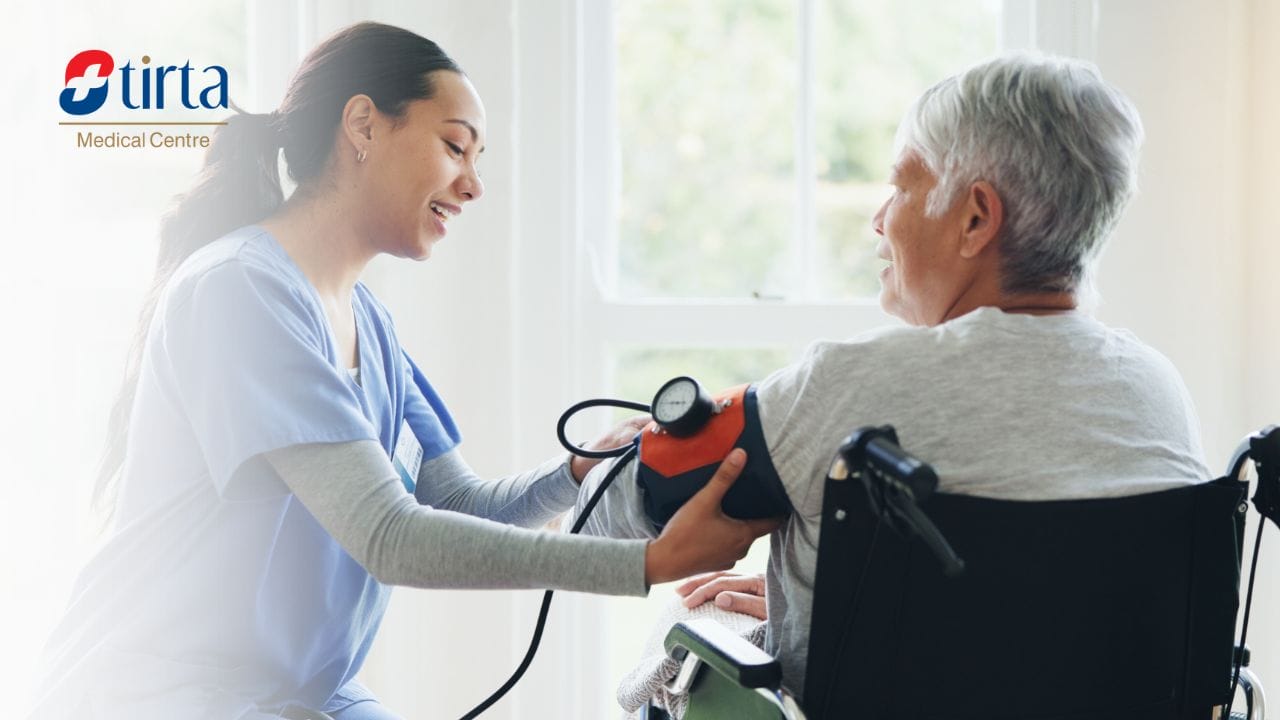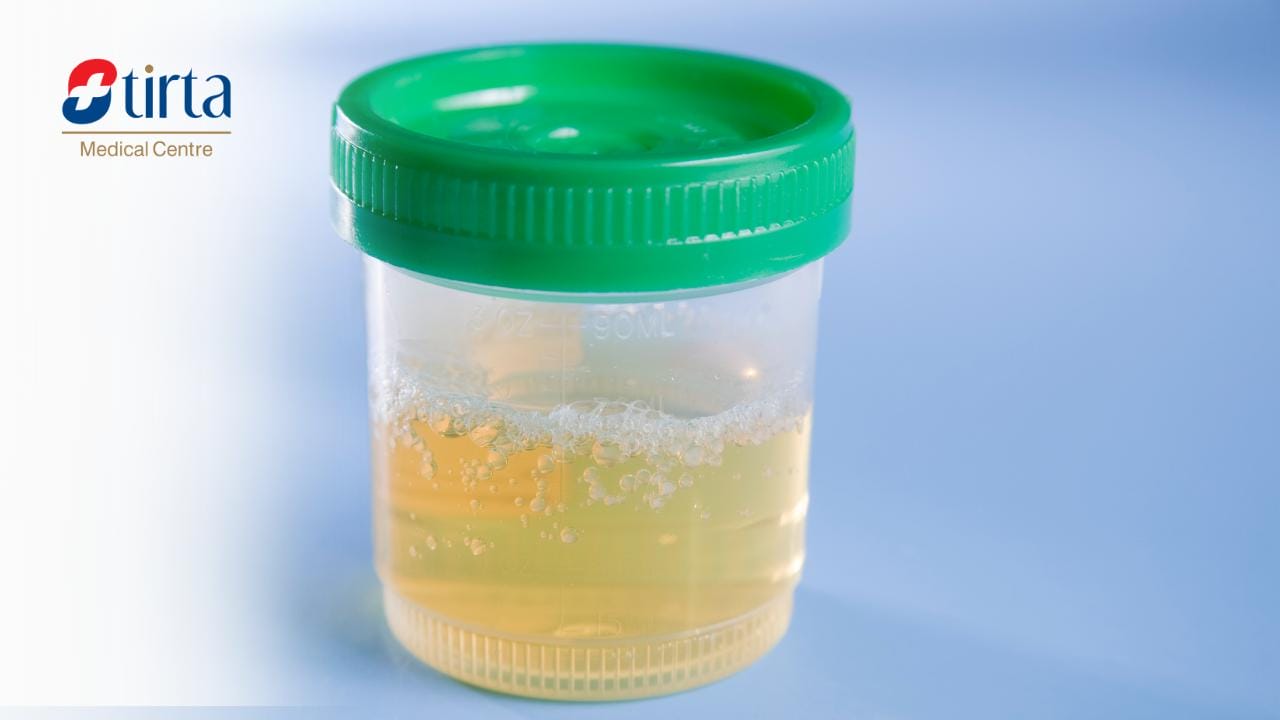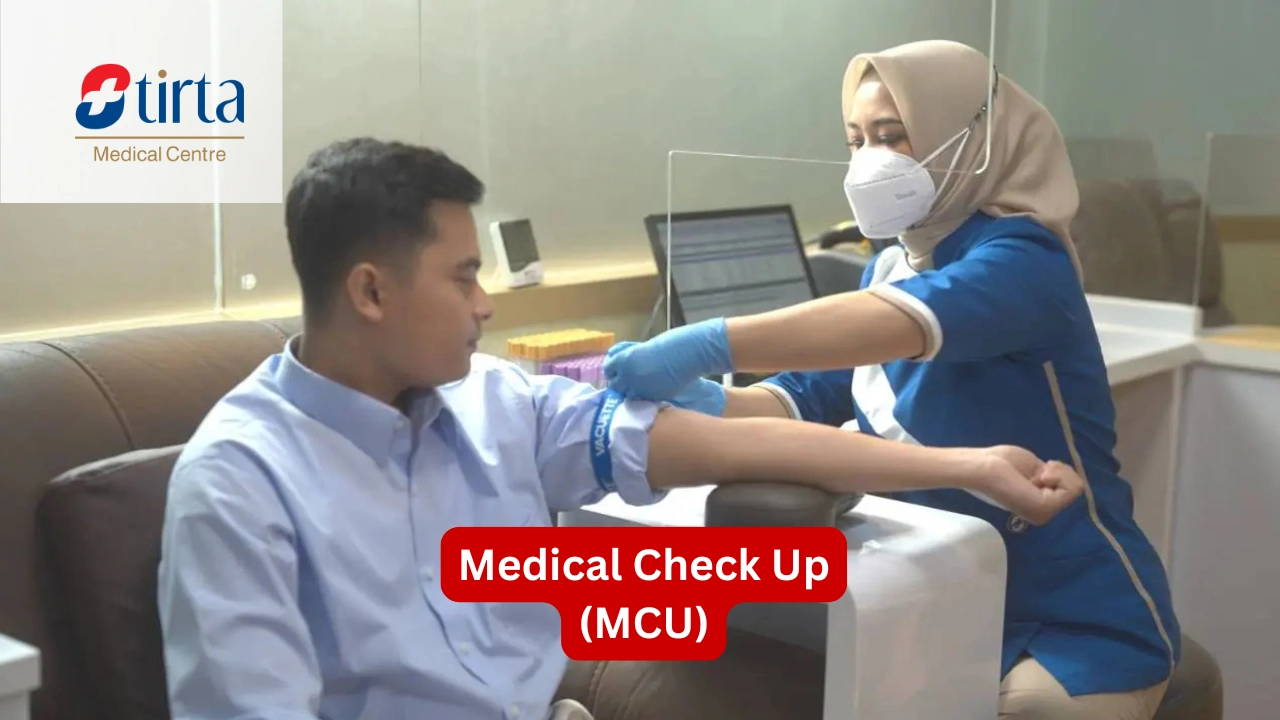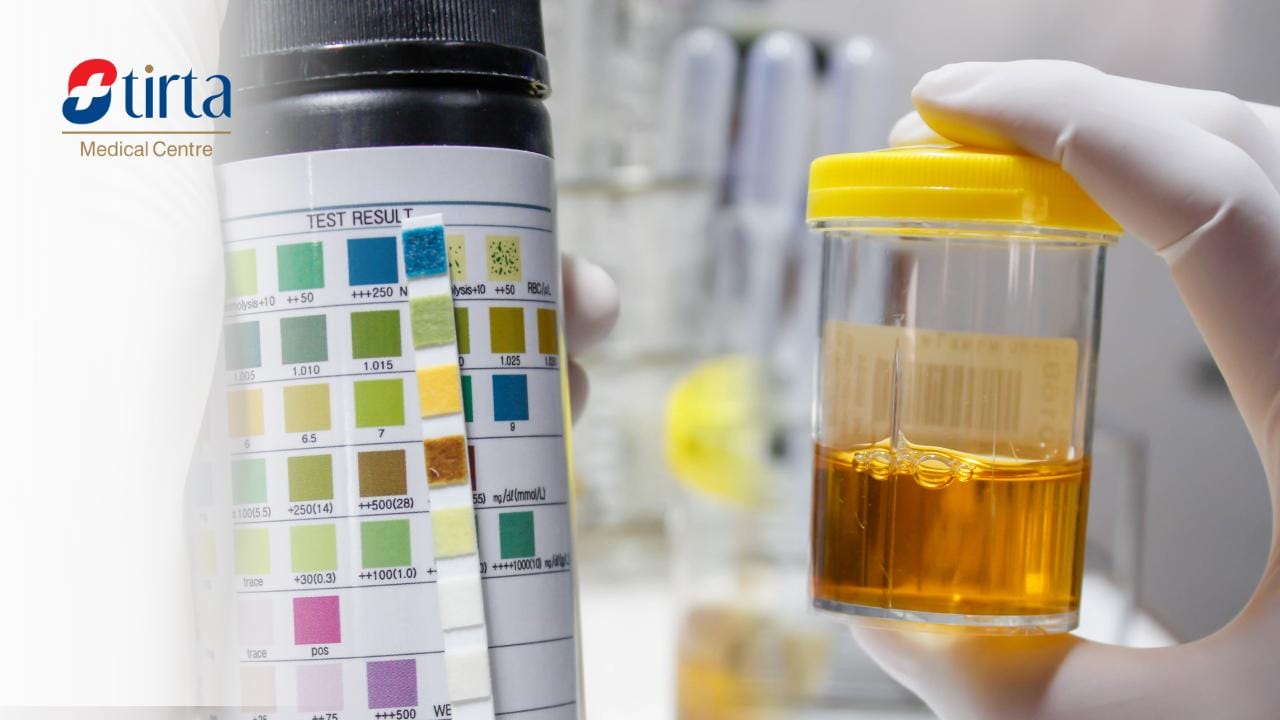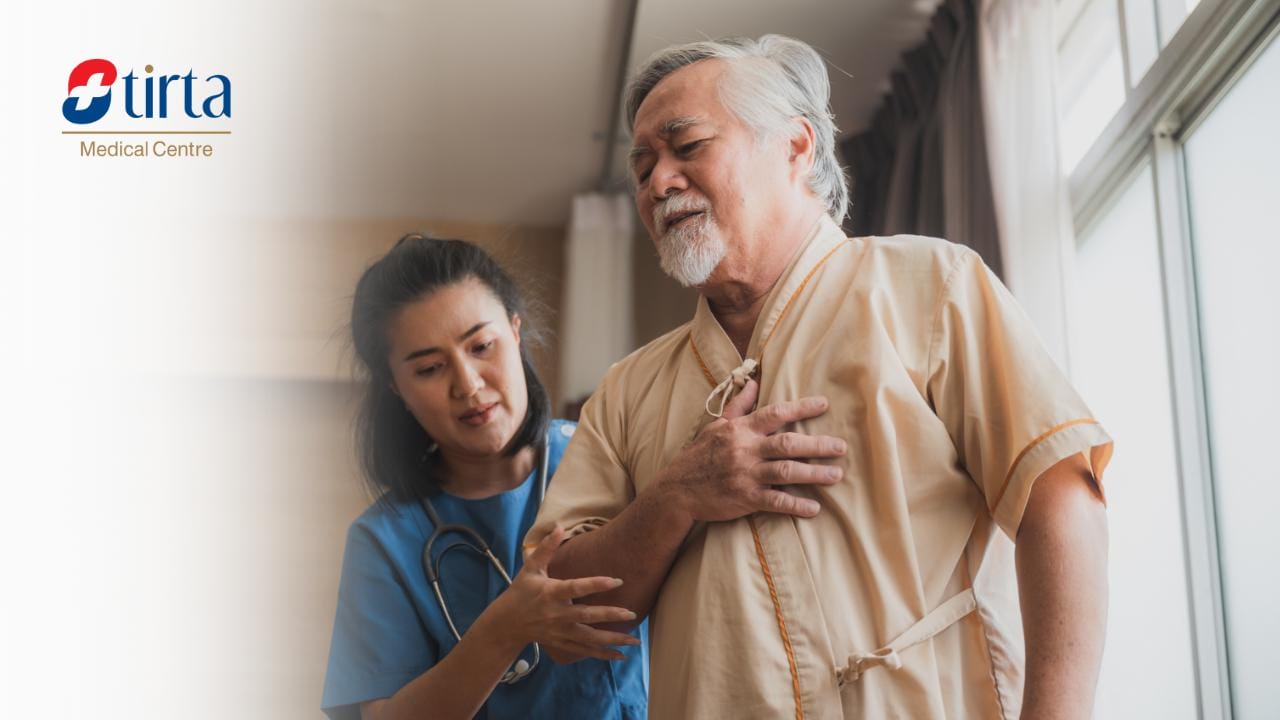Regular Health Check-Up for the elderly is crucial to detect early various medical conditions and maintain their quality of life.
Learn about the types of MCUs for the elderly, the benefits of health tests, the procedures, the right time to undergo an examination, and the recommended places to do it.
Types of Elderly Medical Check-Up
Elderly Medical Check-Up consists of different tests to check overall health and find potential diseases early as people age.
Here are some common types of MCUs for the elderly:
1. Blood Pressure Examination
Hypertension is a common condition in the elderly that can lead to serious complications such as stroke and heart disease. Routine monitoring of blood pressure in the elderly is essential for prevention and management of this condition.
2. Complete Blood Test
This test includes examination of cholesterol levels, blood sugar, as well as kidney and liver function. Moreover, it helps in the early detection of chronic diseases like diabetes and other metabolic disorders.
3. Colorectal Cancer Screening
Examinations such as colonoscopy are performed to detect polyps or colorectal cancer. Early detection allows for more effective treatment and increases the chances of recovery.
4. Bone Density Examination
This examination is necessary to detect osteoporosis, especially in women after menopause. Osteoporosis increases the risk of fractures, so early detection in the elderly is very important with Medical Check-Up.
Benefits of Medical Check-Up for the Elderly
Routine Medical Check-Up provides various important benefits for the elderly, including:
1. Early Disease Detection
Health examinations in the elderly allow for early detection of various diseases before they become more serious, providing an opportunity for faster and more effective management.
2. Monitoring of Chronic Health Conditions
The elderly often suffer from chronic diseases such as diabetes or heart disease. Routine examinations help in monitoring and managing these conditions, thus preventing further complications.
3. Improving Quality of Life
By maintaining physical and mental health through early detection and appropriate treatment, the elderly can enjoy a better quality of life.
Studies show that elderly who regularly undergo Medical Check-Ups have a lower risk of experiencing physical disabilities.
4. Reducing the Risk of Disabilities
According to research from the University of Indonesia Library, Medical Check-Up plays a significant role in maintaining the basic physical abilities of the elderly.
Elderly who do not undergo regular health check-ups are at 1.85 times higher risk of experiencing disabilities compared to those who do so regularly.
By understanding the types and benefits of Medical Check-Up, the elderly can better maintain their health and enhance their quality of life in their later years.
Elderly Medical Check-Up Procedures
The Medical Check-Up procedures for the elderly help assess their health and identify potential medical issues early.
Here are the common steps typically taken during a health examination for the elderly:
1. Initial Consultation
The elderly check-up may start with a consultation between the patient and the doctor. The doctor will gather information about the patient’s health history, including family illnesses, lifestyle habits, and current health issues.
2. Physical Examination
The doctor will perform a thorough physical examination that includes measuring blood pressure, weight, height, and Body Mass Index (BMI).
This exam is crucial for evaluating the patient’s overall health and identifying early signs of conditions like hypertension or obesity.
3. Laboratory Tests
Laboratory examinations usually include a complete blood test to evaluate cholesterol levels, blood sugar, kidney function, and liver function. A urine test is also performed to detect infections or other medical conditions.
4. Radiological Examination
Some imaging tests like chest X-rays or Ultrasound (USG) can be conducted to examine internal organs and detect structural abnormalities or diseases such as lung cancer or heart problems.
5. Special Examinations
Depending on the patient’s age and health, the doctor may suggest other tests like an EKG for heart function, a bone density test for osteoporosis, or a colonoscopy for colorectal cancer screening.
6. Discussion of Results and Follow-up Plan
After all the elderly health checks are completed, the doctor will discuss the results with the patient.
If health issues are found, the doctor may suggest changes to your lifestyle, prescribe medication, or recommend more tests.
This medical check-up ensures that the elderly receive proper care and maintain a good quality of life.
When Should the Elderly Have Medical Check-Ups?
Medical Check-Ups for the elderly are an important step in maintaining their health and quality of life. The number of health check-ups for older adults can vary depending on their health, but there are some general guidelines that can be followed:
1. Annual Examination
The elderly are advised to have a comprehensive health examination at least once a year, even if they feel healthy. This routine check allows early detection of various health conditions that may not yet have symptoms.
2. More Frequent Examinations for Chronic Conditions
For the elderly with chronic health conditions such as diabetes, hypertension, or heart disease, examinations may be required more frequently, for example, every 3-6 months or as recommended by a doctor.
3. After Significant Health Changes
If there is a major health change, like a fall, unexpected weight loss, or new symptoms, the elderly should get a check-up right away instead of waiting for a regular appointment.
4. Special Screenings
Some screening tests have their own schedules. Women over 65 should have a bone density test for osteoporosis every 2 years, while people aged 50 and older should get a colonoscopy for colorectal cancer screening every 10 years.
5. Before Travel
Elderly people planning to travel long distances should first have a health check to ensure they are healthy enough to travel.
It is important to remember that these recommendations are general. Each elderly person has unique health needs, so the examination schedule should be tailored through discussion with their doctor.
The doctor can give tailored recommendations based on each elderly person’s health history, risk factors, and current condition.
Places to Conduct Medical Check-Ups for the Elderly
To obtain the best Medical Check-Up services for the elderly in Indonesia, Tirta Medical Centre (TMC) is highly recommended. TMC is known as a clinic with high-quality medical services and professionalism.
Medical Check-Up clinics like TMC offer various comprehensive health examination packages tailored to the needs of the elderly. With complete facilities and experienced medical staff, TMC ensures that each patient receives the best care.
Get a promotional MCU price for elderly heart examinations: IDR 1,215,000 –> IDR 745,000
Note: Prices may change at any time, Sahabat Tirta can contact us for price updates or reservations here:
Knowing about types, benefits, procedures, and timing of medical check-ups helps the elderly maintain their health better.
Choosing a reputable place like Tirta Medical Centre guarantees high-quality service in Indonesia.
References:
- University of Indonesia Library. Accessed in 2024. The Role of Medical Check-Ups in Basic Physical Activities of the Elderly: A Panel Study of the Elderly Group 1993-2000: https://lib.ui.ac.id/detail?id=117366&location=local
- UNNES Journal. Accessed in 2024. The Relationship Between Medical Check-Up Status and the Incidence of Physical Disability in the Elderly in Punung Subdistrict, Pacitan Regency: https://journal.unnes.ac.id/sju/ujph/article/view/9710
- WebMD. Accessed in 2024. Benefits of Annual Checkups in Your 50s and Older: https://www.webmd.com/healthy-aging/annual-checkups-seniors-importance
- Healthline. Accessed in 2024. Milestone Medical Tests You Should Take in Your 60s, 70s, and Beyond: https://www.healthline.com/health/milestone-medical-tests-you-should-take-in-your-60s-70s-and-beyond
- Mayo Clinic News Network. Accessed in 2024. Mayo Clinic Q and A: Do healthy older adults need regular health care visits?: https://newsnetwork.mayoclinic.org/discussion/mayo-clinic-q-and-a-do-healthy-older-adults-need-regular-health-care-visits/
- Healthline. Accessed in 2024. How Often Should You Get Routine Checkups at the Doctor?: https://www.healthline.com/health/how-often-should-you-get-routine-checkups-at-the-doctor
- NHS. Accessed in 2024. NHS Health Check: https://www.nhs.uk/conditions/nhs-health-check/
- Healthline. The Health Tests That Seniors Need: https://www.healthline.com/health/senior-health-tests

